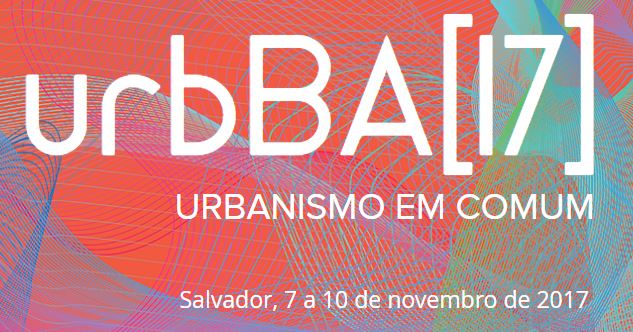
The annual conference of the research group ‘Lugar Comum’ (Common Place), from the Faculty of Architecture of the Universidade Federal da Bahia (Brazil) explores collective practices of producing cities. The conference entitled Urbaismo em comum: novas formulações de urbanismo enquanto tecnologia social (Urbanism in comum: new formulations of urbanism as social technology) aims to examine practices and actions of collaboration between state, civil society and private actors that points towards diverse alternatives to current dominant technocratic modes of urbanism that have trivialized urban policy.
The call for contributions outlines that a variety of concepts have been formulated to articulate these practices, such as co-urbanism, active urbanism, open source urbanism, multitudinous urbanism, tactical urbanism, performative urbanism and social urbanism are some of these conceptualisations. These propositions can, to a large extent, be understood as the search for construction of new practices of production and appropriation of the city, some more horizontal and collaborative, others more oriented to the market, uncritical. However, through various political-operative arrangements, they aim to promote knowledge sharing, the construction of collective time and narratives, interaction between actors and the formulation of urban programs and procedures that result from the complexity and variety of the groups involved.
The conference outlines two fundamental aspects of reflection: The first one concerns the notion of the common, which is an object of growing interest in the current crisis and uncertainty, and which seems to point to a new field of possibilities both in the world of political ideas and in urban studies. Far from pointing to a harmonious framework of sociability, the common brings to the fore a certainty – that the conflicts and precariousness of contemporary cities are a common problem – and a political challenge given by the necessary recomposition of this common from collaborative and egalitarian practices, not subordinated to the determinations of the State and the market.
The second aspect points towards the increasingly evident relationship of these initiatives with the development of innovations and social technologies. These are understood as a process from which emerges a knowledge created to address the problems faced by the organization or group of actors involved. Technology is therefore considered a social construction and not as a deterministic fruit of self-centered processes and anchored in narrow rationality.
More information in the conference website: https://urbba17.wixsite.com/urbba17/urbba-17